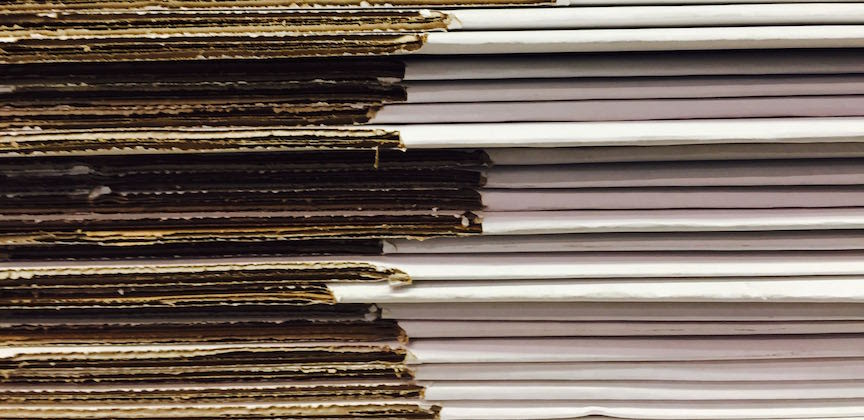How To Store Paper Documents
This probably seems like an easy one. Just stack your papers in a box and put them in a storage unit, right? Well, in most cases, that would probably be all right, but that could also lead to difficulty finding certain documents, and worse, decaying pages.
When it comes to storing papers, you’ll want to get it right the first time. Here’s what you need to know, and how to use that knowledge to keep your paperwork safe.
Acidic Paper
Acidic paper degrades over time on its own, because of its acidic pH balance. Have you ever browsed library or bookstore shelves and found books with yellowing paper? Those pages are made of acidic paper, and their quality is slowly dwindling. Today, most is supposed to be acid free but manufacturers do not always live up to this quality standard.
In 1989, book publishers switched to acid-free paper, so any books published from then onward shouldn’t have this problem. (On that topic, books have their own storage needs, separate from paperwork.)
Fortunately, you can check your papers to know for sure with pH pens, which you can purchase from sites like Amazon.
While the acidic pages will continue to degrade, you can at least slow down this effect by keeping your most valuable acidic pagers each in an archival sleeve and in an acid-free binder.
Scrapbooking and Record Keeping
The best time to deal with acidic paper is before you even use it. If you scrapbook or simply keep many paper documents that you know you will end up storing, it’s a good idea to test individual sheets of different paper brands to make sure that they indeed are acid free.
Protecting All Paper
In fact, store all your papers in acid-free containers and folders. Archival boxes usually fit the bill for containers, and are made with 8 ½’ by 11’ sheets in mind. We recommend hanging folders either in archival boxes or plastic bins specifically made for the folders.
If you go with plastic bins, remember that plastic does not breathe like cardboard does. Make sure they are closed tightly before you put them in storage. While plastic can keep humidity out, but it can also hold moisture in. You might also consider adding a silica gel desiccant to each box. These are the small silica gel packets you’ll often find with various products that absorb moisture to protect a box’s contents.
What to Store at Home
Whether you’re trying to organize papers for home or the office, you’ll want to keep some at home, and put some in storage. For your business, whether in or outside your home, keep paperwork from the last year close to hand. Store your older paperwork, usually going back three to five years, but sometimes longer, in a self-storage unit. Books, scrapbooks, personal taxes, and more that you don’t have room for at home can also go to storage.
Items like birth and marriage certificates, social security cards, passports, and wills are best kept where you can get to the easily. However, you will want to protect them. A great way to keep these safe is in a locked fireproof box. Scan the documents as well and back them up to your cloud drive service.
Extra Protection in Your Storage Unit
If you live in a temperate area with low humidity, you probably won’t need a unit with climate control. However, most areas in the United States experience heat combined with high humidity during at least part of the summer. Moisture can cause serious damage to paper, so if you live in such an area, get a unit with climate control, which will keep the humidity in check.
It’s also a good idea to get shelving for your unit. Many self-storage facilities will even install shelves for you for an additional fee. Shelving for your boxes of paper files keeps your boxes off the floor and allows you to store your boxes without stacking them one atop the other. This provides two distinct advantages. First, it will be easier to get to any given file when you need it. Second, in areas prone to flooding, your files will have less of a chance of getting wet and ruined.
Incidentally, if you do live in a flood area, make sure you get flood insurance, either from the self-storage company or elsewhere.
With this knowledge, you can now safely store your paperwork, giving it the best protection possible.




